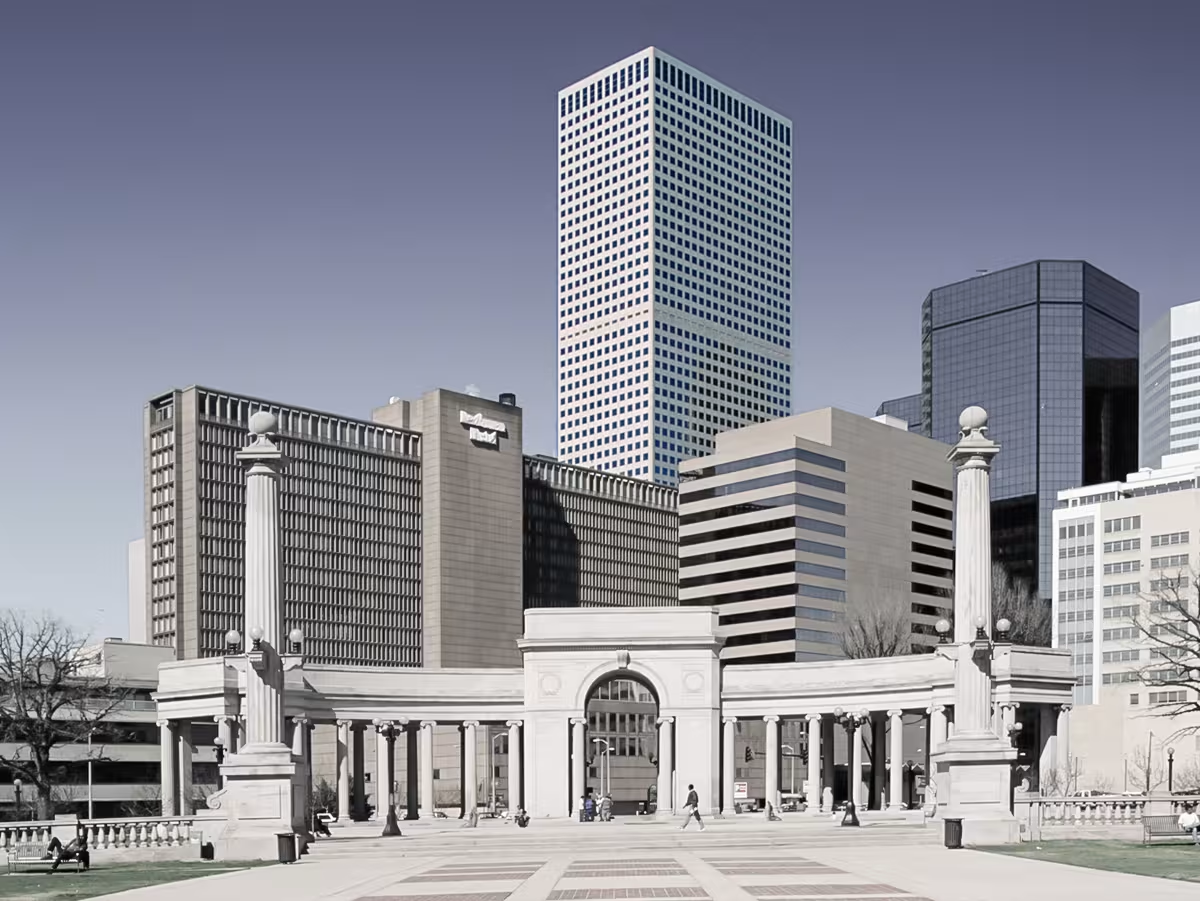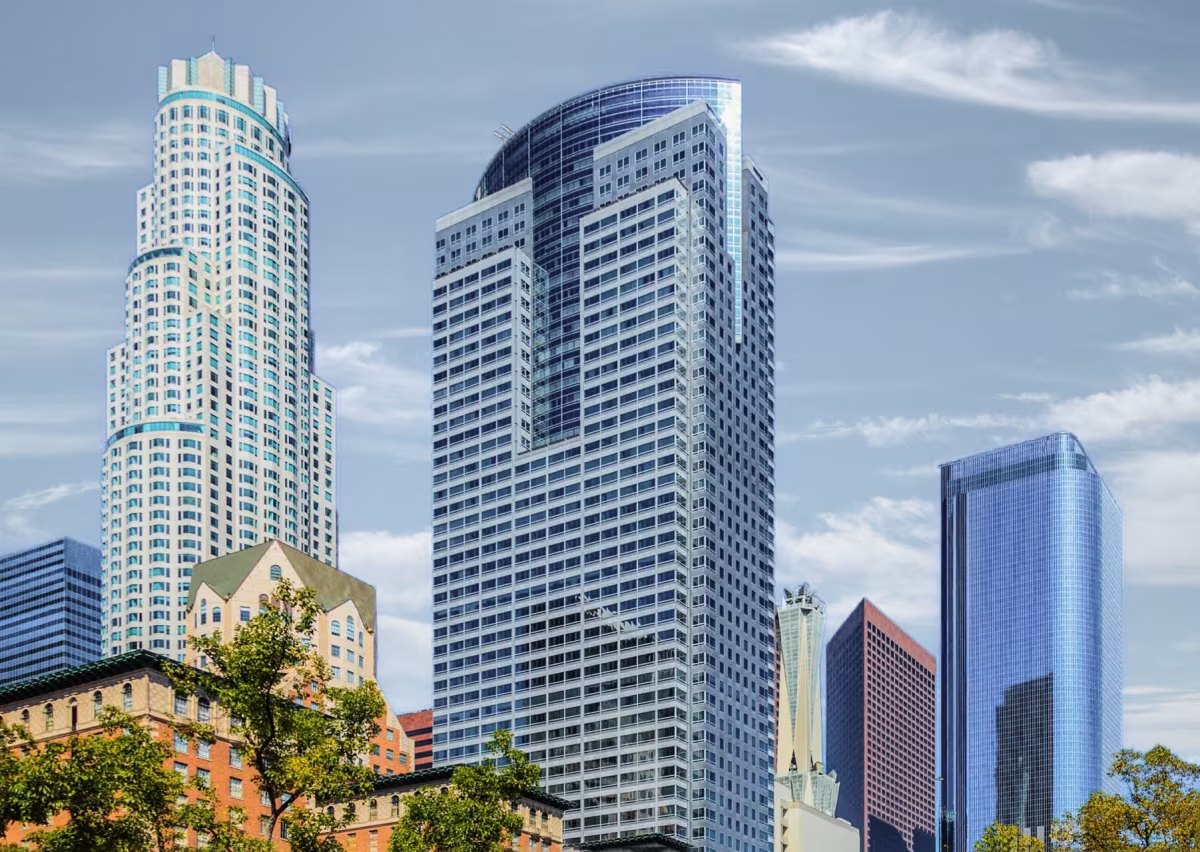Republic Plaza Building vs Gas Company Tower


Comparing the Republic Plaza Building and the Gas Company Tower is compelling because they were both designed by Skidmore, Owings & Merrill, yet they stand in different cities (Denver, CO and Los Angeles, CA), and were completed more than 7 years apart.
What this will allow us to see, is how the same firm's approach adapted to different places at roughly the same time (7 years isn't that much time when it comes to urban context and architecture).
Height & Size
These two towers present an interesting contrast in their proportions. The Gas Company Tower rises higher at 748ft (228m), while the Republic Plaza Building reaches 715ft (218m). However, the Republic Plaza Building accommodates more floors with 56 levels above ground, compared to 52 floors in the Gas Company Tower.
This suggests different approaches to interior space design. The Gas Company Tower has an average floor-to-floor height of approximately 4.4m, while the Republic Plaza Building has more compact floors averaging around 3.9m each. The taller building's more generous floor heights might indicate grander interior spaces, higher ceilings, or different programmatic requirements.
These different proportions likely reflect the specific needs each building was designed to serve, whether driven by zoning regulations, client requirements, or the intended use of the spaces within. The contrast shows how architects can achieve different spatial experiences even when working with similar overall building scales.
Architectural Style
The Republic Plaza Building was designed in the Modern style, while the Gas Company Tower reflects the principles of Postmodernism.
Both towers were built when their respective styles were already past their prime. This makes them feel more like late continuations rather than groundbreaking statements, showing how architectural traditions can linger even as tastes shift.Uses
Both the Republic Plaza Building and the Gas Company Tower were designed to serve as commercial towers, and that has remained their main use since their completion, serving similar roles in the urban fabric.
Structure & Facade
The two buildings opted for different structural and facade solutions.
The Republic Plaza Building uses a Framed Tube In Tube system, which combines a strong central core with a perimeter tube of columns, while the Gas Company Tower uses a Frame system, that relies on a regular grid of columns and beams to sustain its weight.
And when it came to the facade, the Modular went with a Modular facade, which employs prefabricated panels, often mixing solid surfaces with smaller windows, while the Gas Company Tower opted for a Curtain Wall facade, that uses a lightweight glass curtain wall hung from the structure.
| Republic Plaza Building | Gas Company Tower | |
|---|---|---|
| Skidmore, Owings & Merrill | Architect | Skidmore, Owings & Merrill |
| 1982 | Construction Started | 1988 |
| 1984 | Year Completed | 1991 |
| Modern | Architectural Style | Postmodernism |
| Commercial | Current Use | Commercial |
| 56 | Floors Above Ground | 52 |
| 218 m | Height (m) | 228 m |
| 114745 | Built-up Area (m²) | 165530 |
| Framed Tube In Tube | Structure Type | Frame |
| Reinforced Concrete | Vertical Structure Material | Steel |
| Reinforced Concrete | Horizontal Structure Material | Concrete |
| Yes | Facade Structural? | No |
| Granite, Glass | Main Facade Material | Glass, Steel |
| PCL Construction Services | Main Contractor | Turner Construction |
| Brookfield Properties | Developer | Thomas Properties Group |
| Enclos Corp. | Facade Consultant | Curtainwall Design Consulting |
| CO | State | CA |
| Denver | City | Los Angeles |
| 330 17th Street | Address | 555 West 5th Street |